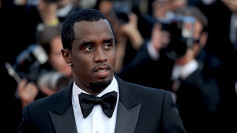Blake Lively's legal battle with director and co-star Justin Baldoni has reignited discussions about Hollywood's pervasive culture of harassment and retaliation, sparking an outpouring of support and stories from other actresses. The case has rapidly become a flashpoint for conversations on gender equity and workplace safety in the entertainment industry, years after the #MeToo movement exposed systemic abuse.
Lively, 37, filed a complaint with California's Civil Rights Department on December 20, accusing Baldoni of sexual harassment during the filming of It Ends With Us. The actress also alleged that after she raised concerns, Baldoni and his production company, Wayfarer Studios, retaliated by orchestrating a smear campaign aimed at tarnishing her reputation. Baldoni's lawyer, Bryan Freedman, has vehemently denied the accusations, calling them "false, outrageous, and intentionally salacious."
In a statement to The New York Times, Lively expressed hope that her legal action would expose the retaliatory tactics often used to silence those who speak out. "I hope that my legal action helps pull back the curtain on these sinister tactics to harm people who speak up about misconduct and helps protect others who may be targeted," she said.
The fallout for Baldoni has been swift. His talent agency dropped him, his podcast co-host resigned, and a prominent global nonprofit rescinded an award given to him just weeks earlier. Despite the turmoil, Lively remains resolute, with sources close to her saying she is determined to see the process through while surrounded by the support of her family, including husband Ryan Reynolds.
Lively's complaint has galvanized other actresses to come forward with their own stories of harassment and retaliation in Hollywood. Kate Beckinsale and Abigail Breslin are among those who have shared their experiences, attributing their decision to speak out to Lively's courage. Beckinsale, 50, posted a video on Instagram recounting numerous instances of misconduct she faced throughout her career, including being dismissed and ostracized after raising concerns about unsafe working conditions.
"I was gaslit and made to feel like I was the problem," Beckinsale said in her video. "As soon as I mentioned there was a problem, I was blamed and left out." She credited Lively with highlighting the ongoing nature of these issues. "I'm grateful to Blake Lively for showing that this is not an archaic problem-it's continuing."
Breslin, 28, also broke her silence, detailing her experience of being sued by producers after making a confidential complaint about a co-star's behavior. "Instead of being believed and protected, a suit was filed against me for having the audacity to speak up," Breslin wrote on social media. She described the ordeal as a systematic attempt to discredit her, likening it to Lively's current battle.
Lively's legal journey is still unfolding. The California Civil Rights Department has 60 days to decide whether to investigate the complaint or grant her the right to sue, potentially leading to a high-profile trial. Legal experts predict a protracted battle, with the potential for Baldoni to countersue.
The ripple effects of Lively's case extend beyond the courtroom. Several high-profile figures, including Alexis Bledel, America Ferrera, and Amber Tamblyn, have voiced their support for Lively, issuing a joint statement that called out the systemic challenges women face in Hollywood. "Even if a woman is as strong, celebrated, and resourced as our friend Blake, she can face forceful retaliation for daring to ask for a safe working environment," they wrote.
The case has also prompted renewed scrutiny of Hollywood's progress since the #MeToo movement. While some reforms have been made, many actresses argue that meaningful change remains elusive. Breslin summed up the sentiment, saying, "To change the narrative, we don't need more women to scream. We just need a lot more men to shut up and listen."
As Lively prepares for what her team predicts will be an "explosive" year, her actions continue to resonate throughout the industry, inspiring others to confront Hollywood's deep-rooted culture of silence and retaliation.





